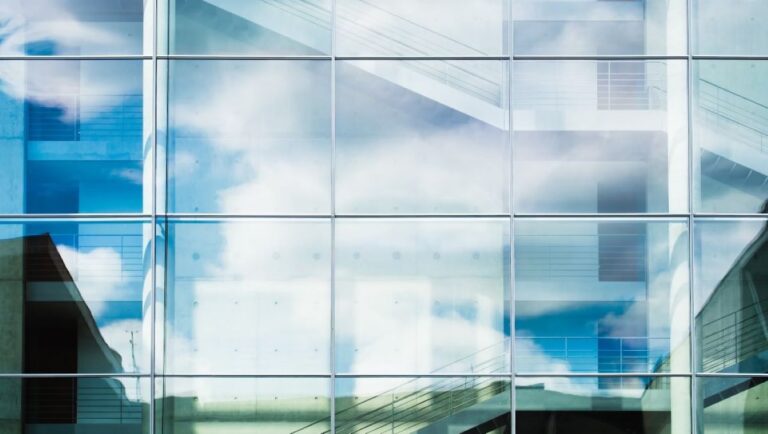Here we go again: just a few days into spring and we can already sense that it’s going to be another scorching summer, with our homes turning into ovens.
To combat the heat, we’ll turn to air conditioners, energy-guzzling devices that contribute to CO2 emissions. But what if there were a way to keep our spaces cool without harming the environment?
Table of Contents
The challenge of sustainable cooling
Every year, we look for potential solutions to this challenge, and this year a team from the University of Notre Dame in the United States has come up with a solution that is as simple as it is ingenious: a “smart” glass that blocks heat while allowing light to pass through. Let’s explore how this invention works.
The research group led by Professor Tengfei Luo published a study in the journal Cell Reports Physical Science titled “Wide-angle spectral filter for energy-saving windows designed by quantum annealing-enhanced active learning.”
As the title suggests, the article describes the development of a type of coating aimed at reducing the energy consumption of buildings and decreasing the reliance on air conditioners.
This innovative coating can block infrared and ultraviolet light while allowing visible light to pass through, regardless of the sun’s position. It’s important to know that infrared and ultraviolet are the wavelengths responsible for unwanted heat inside homes.
A silicon polymer for enhanced efficiency
Conventional window coatings are mostly designed to perform optimally when solar radiation strikes them at a 90-degree angle. Unfortunately, the incidence of natural light constantly changes based on the time of day and season. In simple terms, these solutions have their limitations.
To overcome this problem, Professor Tengfei Luo and his colleagues created a window coating composed of ultra-thin layers of silica, alumina, and titanium oxide on a glass base.
Additionally, they incorporated a one-micrometer-thick silicon polymer to better reflect thermal radiation into the vacuum, i.e., outside the building.
Quantum computing for energy savings
By leveraging quantum computing, the researchers were able to determine the optimal configuration to maximize light penetration while simultaneously reducing exposure to heat-generating wavelengths.
Through simulations, the team discovered that their transparent coating could reduce indoor temperatures by 5.4 to 7.2°C, regardless of the angle of sunlight penetration.
A revolution for a sustainable future
The invention from the University of Notre Dame represents a significant step forward in the fight against global warming and CO2 emissions.
Thanks to this “magical” glass, we might soon limit or even avoid the use of energy-hungry air conditioners and their high costs, without sacrificing the comfort of our homes.
But the benefits don’t stop there. This technology could also be applied to other sectors, such as the automotive industry, helping to reduce fuel consumption and harmful emissions.
Of course, the path to widespread adoption of these smart windows is still long. Further research and investments will be needed to make the product accessible to everyone. Meanwhile, it’s clear that sometimes the most brilliant solutions lie in the invisible details, like the wavelengths of light.
Read also: Tips for cooling your home naturally without air conditioning












